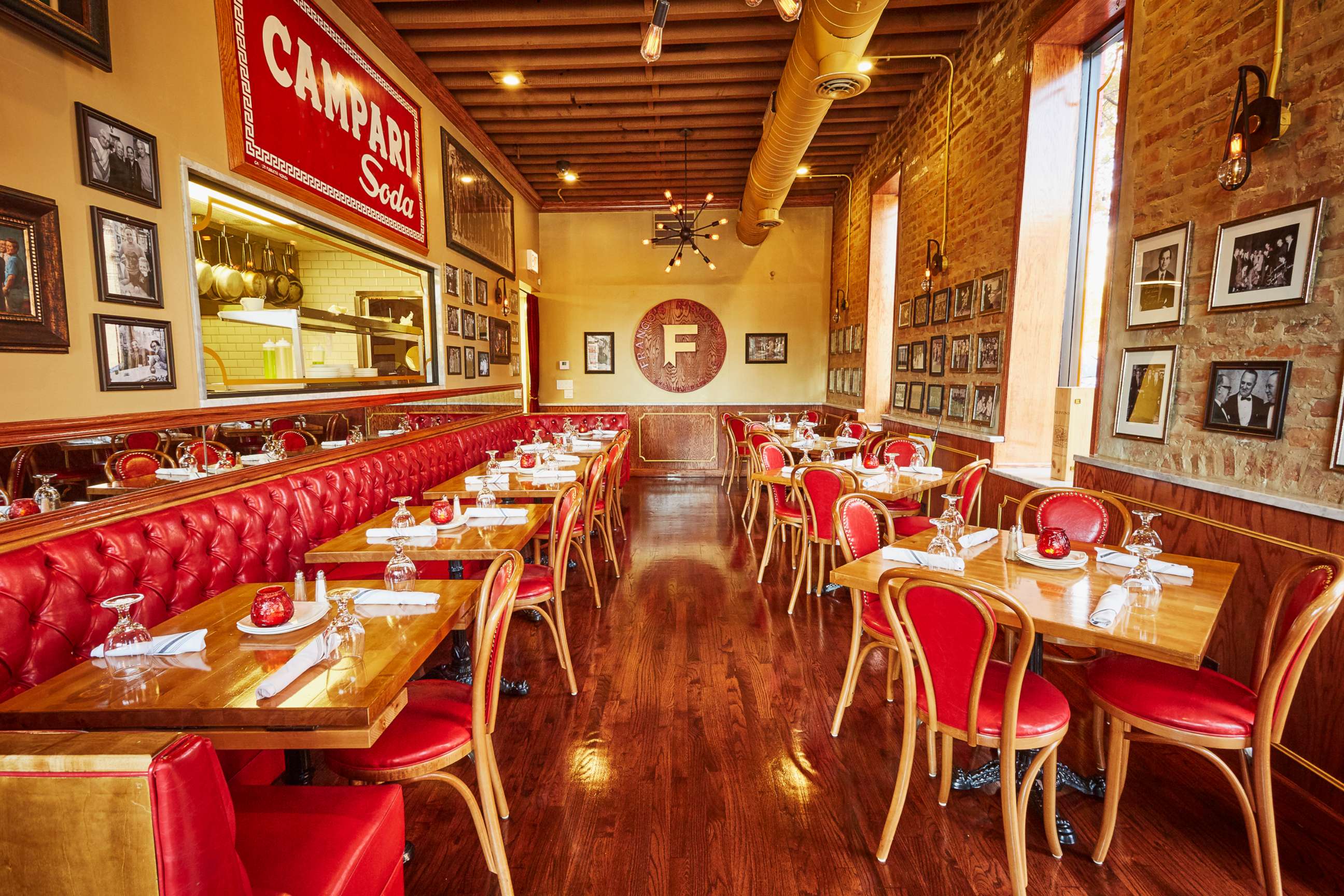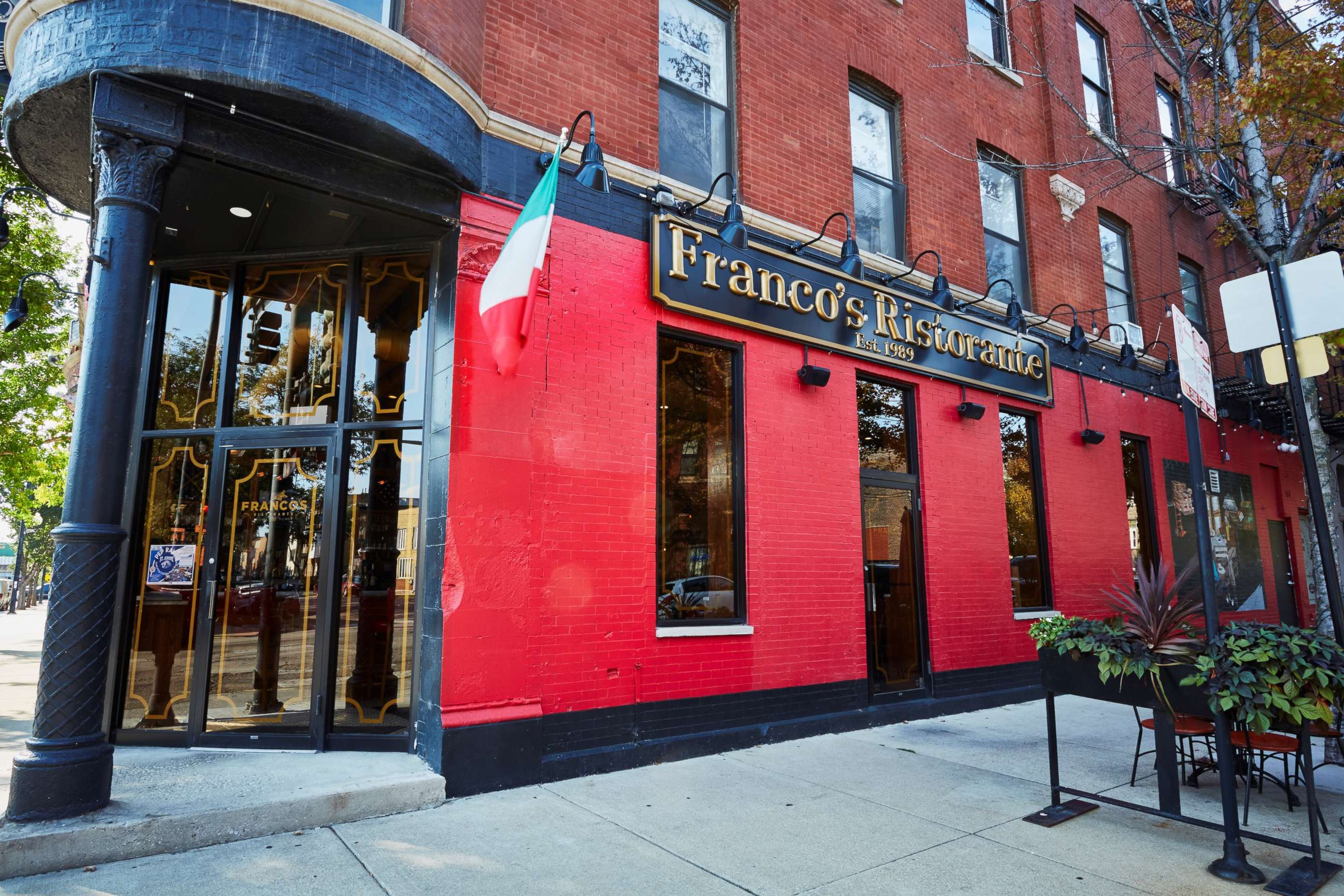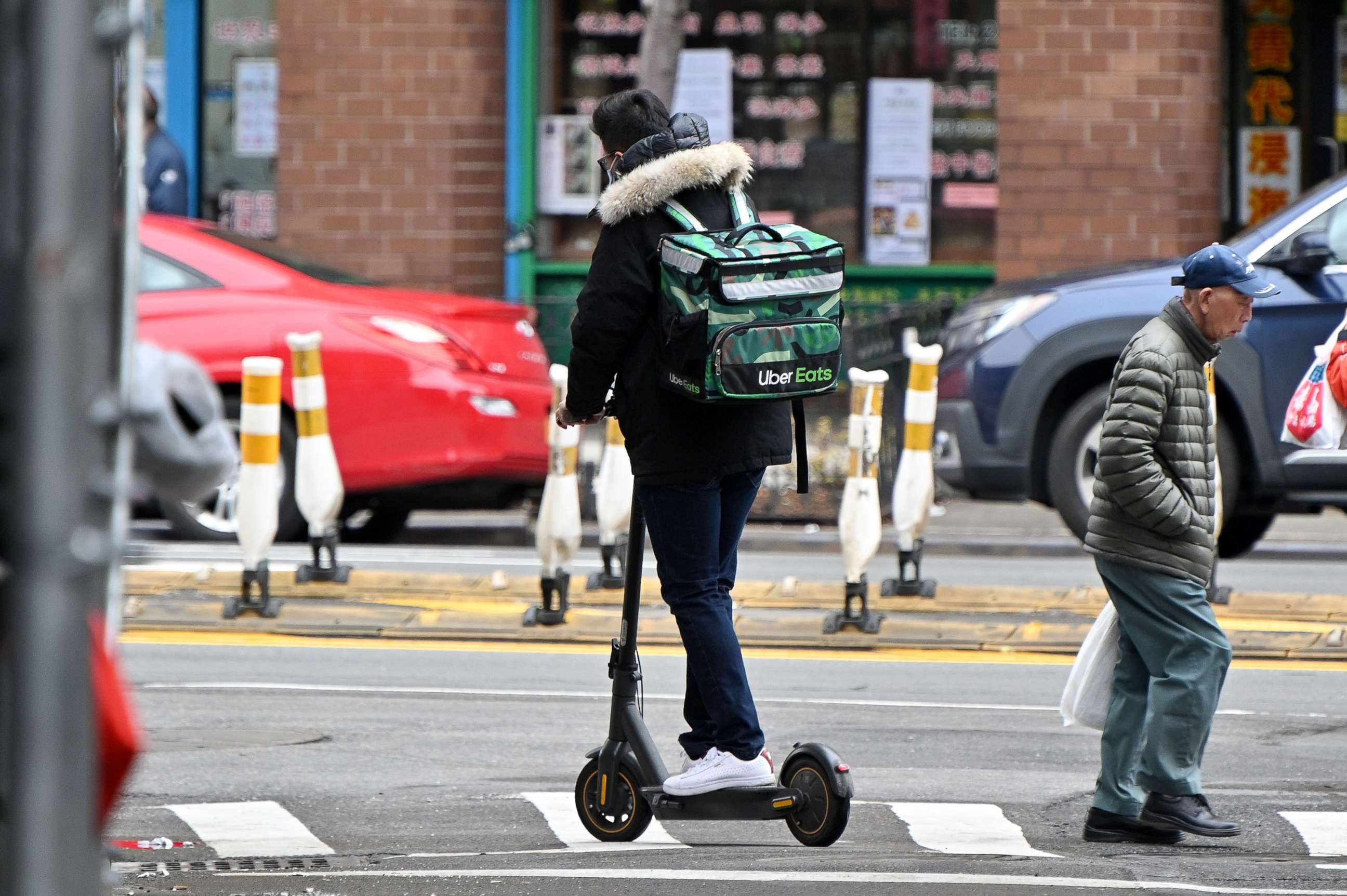Private companies are stepping in to help faster than the federal government -- but how long can it last?
"It's a focus on the community," one banker says.
On a typical Saturday night, the dining room in Franco's Ristorante in Chicago's South Side is filled to the brim. Up to 250 diners pack into its tufted red leather booths and sit around its square tables, sampling Italian fare from the neighborhood spot that's branded as "a little place with big taste."
"From about 6:30 p.m. to 9:30 p.m., we're completely booked," said Frank Ruffolo, the restaurant's owner.
Now, the dining room sits empty every night, closed by order of the state of Illinois.
"As soon as they said we were still going to be allowed to open for carryout and delivery we were focusing in on that," Ruffolo said. But as a fine dining restaurant, the vast majority of his clientele had always been dine-in customers. The "new normal" brought about by the coronavirus pandemic required a new business model.
In the past, Ruffolo may have had to go it alone when it came to setting up a sufficiently robust delivery service and advertising to customers who may not know his kitchen is still open. But as restaurants like Franco's attempt to remain afloat as they wait for assistance from the federal government to arrive, a network of tech-forward companies has stepped in to help them rapidly adapt to the circumstances. But while these partnerships have helped many stay afloat, experts say in this time of financial distress, they can only accomplish so much, and may only exist for so long.
Last week, Ruffolo applied for a forgivable, low interest loan from the Paycheck Protection Program, created as part of the $2 trillion coronavirus relief package passed by Congress in late March to provide a lifeline to small businesses. He has yet to hear back if he was approved. But just a day after he was forced to close his dining room, Uber Eats announced it was waiving delivery fees for independent restaurants and launching daily dedicated, targeted marketing campaigns to promote the establishments.

"Before, Uber Eats was maybe, on a good week, 2 to 5% of our sales. Now it's getting closer 20 to 25," Ruffolo said. "Each week it's slowly rising more and more."
"It's a form of altruistic business models," said Savita Subramanian, head of U.S. equity and quantitative strategy at Bank of America. "Companies have really expanded their role of maximizing shareholder returns to really focusing on stakeholders. It's a focus on the community."
"I think what we're seeing now is a really quick acceleration in that trend. You have companies that are doing really interesting, and in some cases, profit-sacrificing measures to basically hasten the return of growth," Subramanian added.
It's not just small businesses that are seeing some benefit; companies are finding ways to help individual consumers also. As Americans ordered to shelter in place are driving -- and crashing --less, the top-10 car insurance companies have all announced they will partially refund premiums or slash rates. Allstate is advising customers that the fastest way to claim their payback is through their app. And on the medical front, some health insurance companies are waiving copays for telehealth doctors' visits, while some telehealth companies are offering free or low cost visits for the uninsured.
According to Rob Atkinson, founder and president of the think tank Information Technology and Innovation Foundation, the rapid response from companies like these has vastly outpaced that of the federal government.
"The government is not set up to function in an isolation economy, and it's frankly a tragedy," Atkinson said. "If the government had similar technological capabilities, we'd be in a different position."
"For example, the stimulus checks already would have been in people's bank accounts last week. People would have had that deep sigh of relief, 'Oh thank God, I have this money. I can pay my rent now.' That's not the case," Atkinson added.
The government has made efforts to expedite relief using modern technology. The IRS has launched its Get My Payment app, which allows users to enter their account information to speed up their stimulus payments, but there have been a number of reported glitches. Additionally, the Small Business Administration has now approved a number of fintech services to distribute Paycheck Protection Program loans, but the announcement comes as many applicants have experienced delays and the available funds have nearly dried up.

For the individual and the business alike, as they struggle to fulfill financial obligations, time is of the essence. If those needs are not met, there are potentially implications for the economy at large.
"The longer this lasts, the worse it is," emphasizing that there is more to consider than lost profits alone; the widespread and extended loss of income has the potential to set off chain reactions. For instance, Subramanian notes that while many might think cosmetic and personal care product manufacturers might not see as significant of a decline in sales, some are already reporting dips during the first quarter of the year because they do a significant portion of their retail through airports -- an early ripple effect of the crisis.
And while altruism might play a factor in some companies' strategies during the pandemic, they still have a bottom line to consider.
"What we're forecasting is a 30% decline in corporate earnings growth, which is a little bit worse than the typical recession," Subramanian said. She added that although there is an effort by both business and corporations to limit the crisis' impact on small business, if earnings don't rebound, larger enterprises may no longer have the means to help.
Even now, businesses like Uber are keeping their margins in mind. Although they have seen a significant increase in restaurants signing up for Uber Eats and orders placed through the app since the pandemic took hold, SEC filings show that in the last quarter of 2019, roughly 75% of Uber's bookings were for ride-share services, for which there is currently little demand.
Although some have called for the company to temporarily decrease commission charges, Uber Eats still takes up to 30% of revenue from each order placed through the app.

"Regulating the commissions that fund our marketplace -- particularly during these unprecedented times -- would force us to radically alter the way we do business, set a far-reaching precedent in a highly competitive market, and could ultimately hurt those that we're trying to help the most: customers, small businesses and delivery people," an Uber spokesperson told ABC.
At Franco's Ristorante, Ruffolo says those commission charges cut deeply into his already sharply diminished profits, but if he wants to try to stay in business, he doesn't have many other choices.
Ruffolo is currently participating in Uber Eats' virtual restaurant week, a promotional effort to drive more business for both app and restaurant. Even the menu has had to adapt to the changing times. In February, Franco's participated in Chicago's traditional, brick and mortar restaurant week. Then, the offering was a three to four course meal; the most popular dish was the chicken giardiniera, served on a bed of roasted potatoes.
During virtual restaurant week, Franco's is serving up family style dinners.
"It's going to feed four to six people, and hopefully have some leftovers," Ruffolo said. "I'm just trying to have something that's more economical for people."
What to know about the coronavirus:
- How it started and how to protect yourself: Coronavirus explained
- What to do if you have symptoms: Coronavirus symptoms
- Tracking the spread in the U.S. and worldwide: Coronavirus map
Tune into ABC at 1 p.m. ET and ABC News Live at 4 p.m. ET every weekday for special coverage of the novel coronavirus with the full ABC News team, including the latest news, context and analysis.




